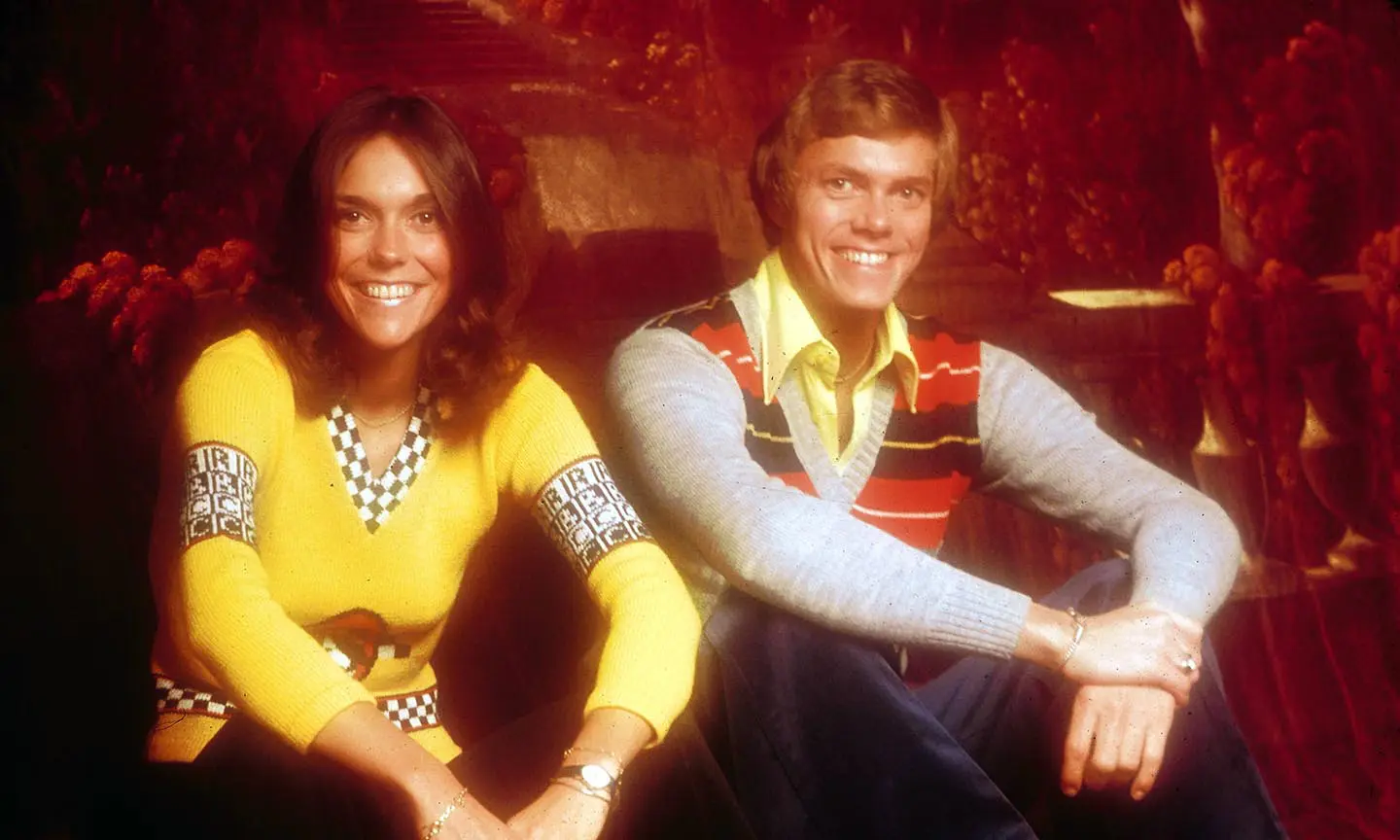
The Carpenters: A Bittersweet Legacy Behind One of Music’s Most Iconic Voices
Before tragedy struck in the early 1980s, the Carpenters were one of the most beloved duos in the history of popular music. Made up of siblings Karen and Richard Carpenter, their smooth harmonies and heartfelt ballads dominated airwaves, earning them comparisons to legends like Elvis Presley and The Beatles. But beyond their chart-topping success lies a deeply emotional and often haunting story — especially that of Karen Carpenter.
From their humble beginnings, the Carpenters were destined for something special. Their first album under A&M Records went largely unnoticed, but their second effort, featuring a dreamy cover of “(They Long to Be) Close to You,” shot them to instant stardom and won them a Grammy. Karen’s pure, angelic voice captured the heart of a generation, drawing praise from even Paul McCartney, who once called her voice “the most beautiful” he’d ever heard.
Yet behind the microphone, Karen Carpenter was fighting a silent battle. Her struggle with anorexia nervosa began in high school, long before the public understood the dangers of the disease. Driven by image insecurity and a strained relationship with her mother, Agnes Carpenter, Karen became obsessed with dieting. Though always slim, she viewed herself as “chubby” and sought extreme methods to control her weight.
At just 5’5″, Karen dropped from 120 pounds to around 90 at her lowest. She took laxatives, thyroid medication, and later syrup of ipecac, a drug meant to induce vomiting. Her heart, slowly weakened by years of abuse, could no longer endure the toll.
Despite seeking help in New York in the early 1980s and briefly gaining weight under supervision, Karen returned to Los Angeles before Thanksgiving 1982. On February 4, 1983, she collapsed in her parents’ home and was later pronounced dead. She was only 32 years old. Her death was ruled cardiac arrest brought on by emetine cardiotoxicity due to long-term anorexia and the misuse of ipecac syrup.
In the months following her passing, the Carpenters were posthumously honored with a star on the Hollywood Walk of Fame. Their legacy, built on songs like “We’ve Only Just Begun” and “Rainy Days and Mondays,” remains alive to this day. Karen’s tragic death brought widespread awareness to eating disorders, making her the first major celebrity to shine a spotlight on this often-misunderstood condition.
But there’s more to the Carpenters’ story than sorrow. The duo was known for their warmth and generosity. During live performances of “Sing,” they often invited local children’s choirs to join them on stage, spreading joy in every city they visited. They also gave back to communities through charity work, including fundraising for the Middlesex County Cancer Society, with Karen even pitching for their celebrity softball team in 1973.
Richard Carpenter, the creative backbone of the group, also faced personal demons, including an addiction to prescription drugs in the late 1970s. Fortunately, he entered rehab and recovered, continuing to honor his sister’s memory and legacy through music and performance. Today, he performs alongside his children and remains a respected figure in music.
In a strange and touching twist, some workers at the Jim Henson Company Studios — once the home of A&M Records — have claimed to see Karen’s ghost, wandering the halls of the place where her voice first soared into the world.
Despite the heartache, the Carpenters’ music continues to resonate, selling consistently even decades after Karen’s death. Their melodies — simple, sincere, and achingly beautiful — are timeless. But it is Karen’s voice, filled with both longing and light, that lingers most. Her story is one of brilliance and heartbreak, of fame and fragility, and ultimately, of a legacy that refuses to be forgotten.